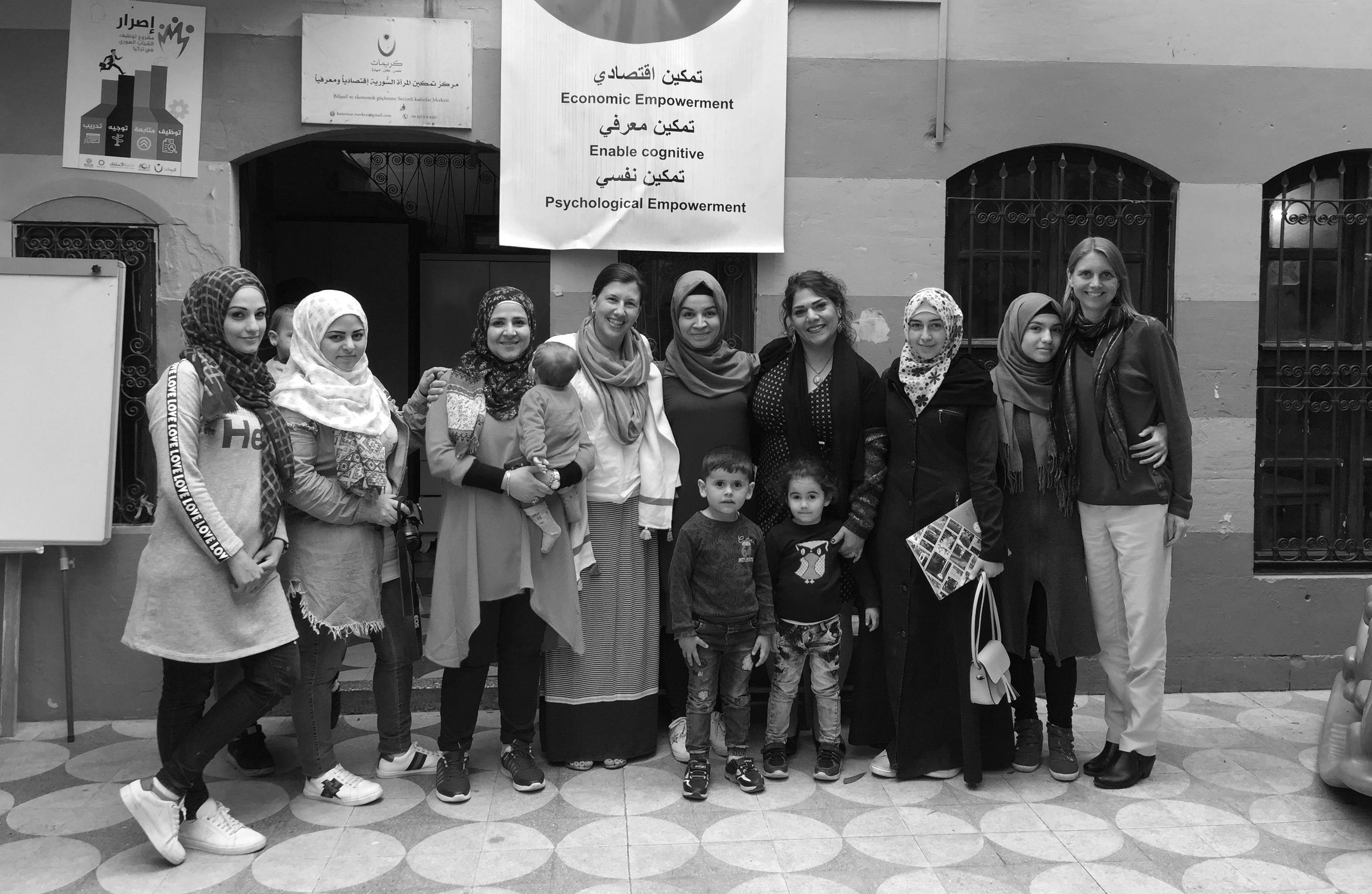
4 minute read
The Contextual Conditions for Insecurity
Women peacebuilders are the often invisible first responders in conflict and war zones who challenge those who abuse power and stand in the way of peace. As Sanam Naraghi Anderlini writes,
Peacebuilding work is risky and precarious. In highly polarized contexts where adversaries dehumanize each other, anyone willing to reach across the lines of conflict to engage in dialogue exposes themselves to mistrust from all sides, including from within their own communities.10
The threats are intensifying because governments have been emboldened by one another. This is the normative effect of cracking down on civil society, global hostility to women, and rising digital insecurity.12
Women peacebuilders have deep knowledge and the trust of local communities. Yet, women peacebuilders have been systematically excluded, misunderstood, and threatened as a result of their work. In the words of peacebuilder and founder of Libyan Women Forum Shahrazad Magrabi, “We are changing mindsets, adapting to change, and facing risks. Yet, we are not recognized. Peacebuilders need to be visible and represented on national and international levels.”11
Women peacebuilders, as members of civil society, often question the current status of the relationship between the state and civil society and articulate a different vision of what the state can and should be. Ideally, states exist to provide the rule of law and security for their citizens, to govern justly with accountability to diverse groups, and to meet the basic human needs and rights of their people. Civil society has become a kind of fifth estate, as it fosters the social contract between the state and the people. However, in the face of poor governance—corruption, impunity, and lack of services—civil society fills the vacuum left by a dysfunctional state. States are increasingly restricting the space for civil society to operate, and leveraging military, intelligence, and security forces to neutralize those who question the status quo and their power. As Jennifer Freeman, CEO of PeaceGeeks and a Visiting Fellow at the LSE Centre for Women, Peace and Security, reflects:
Women peacebuilders face enormous danger in their work as they challenge existing power structures, systems of governance, control of resources, and notions of security. At the end of the day, while peacebuilding is not partisan, it is political.
The Art and Danger of Building Bridges
Women peacebuilders’ work is essentially cross-communal, whether interethnic, interreligious, between displaced people and host societies, or between returning extremists and their home communities. Peacebuilders’ use of dialogue and engagement with different parties defines their work and enables them to negotiate humanitarian access, bring actors to the peace table, challenge extremist ideologies violence, and facilitate reconciliation and social healing. However, this engagement with “the other” specifically puts them at risk, more than any other civic actors operating in a conflict zone.
Since peacebuilders depend so much on credibility and maintenance of trust of all parties in a conflict, they are more likely to be attacked, including by members of their own group, if that reputation is ever questioned. Broken trust with one group can extend to another. For example, when one Nigerian peacebuilder was ostracized by a peer organization, the government also refused to invite her to meetings.
10. Sanam Naraghi Anderlini, MBE, Recognizing Women Peacebuilders: Critical Actors in Effective Peacemaking, International Civil Society Action Network (ICAN), October 2020, 7. 11. Consulations, Caux Forum “Towards an Inclusive Peace”, July 2019. 12. Protecting Women Peacebuilders” GSX Workshop, London, February 2020.
“A key distinction is that WHRDs call out perpetrators and seek accountability whereas women peacebuilders seek out those violating human rights and engage for a shared future. When it comes to risk and response, this means that what helps one can harm the other.”36 “As women peacebuilders we will always dialogue with the other, it is our principle.” - Rosa Emilia Salamanca, CIASE, Colombia
Stories of women peacebuilders under threat are threaded with perceived betrayal and fundamental misunderstanding of their work. This dynamic may be hard-wired in our neurology. Human beings have a fundamental need for belonging and we organize ourselves into distinct groups with shared identities to fulfil this imperative.13 Thus, a member of one’s group reaching out to another can be perceived as an existential threat to group cohesion. Occupying, and bridging, that uncomfortable space is the essence of what women peacebuilders do. For example, Rudina Çollaku is President and Founder of Women Center for Development and Culture in Albania. As a practicing Muslim woman working on Countering Violent Extremism (CVE) and community resilience, she experiences feelings of insecurity and opposition from believers within her community but also indifferent relations from law enforcement and security institutions.
Distrust of and dissatisfaction with the government has led to deep discontent in Colombia, where the multiplication of violence14 and violent actors after the signing of the peace agreement has increased the risk to peacebuilders who engage state and security actors in the course of their work. Last year there were strikes in Colombia and people were very angry with the government. “As women peacebuilders we will always dialogue with the other, it is our principle,” says Rosa Emilia Salamanca of CIASE, adding, “There is a risk that people will judge us for this, for talking to people that others don’t like, but this is part of our work building new bridges that others will use after.”15
Halfway around the world, the experience of an Indian Muslim activist echoes this, “If I’m seen as sitting with the government, I’m seen as being against my community and this brings major threats.”16
13. Esra Cuhadar, Understanding Resistance to Inclusive Peace Processes (United States Institute of Peace, number 159, March 2020. 14. Colombia has witnessed, since the signing of the peace agreement, a 600% increase in the attacks on human rights defenders and peacebuilders. 15. Consultations, “Protecting Women Peacebuilders” GSX Workshop, London, February 2020. 16. Ibid.





